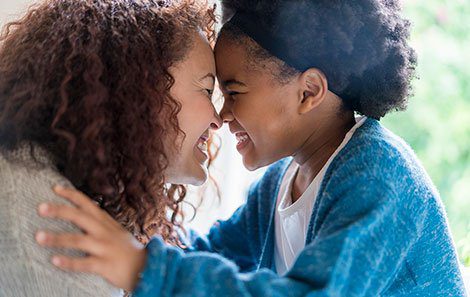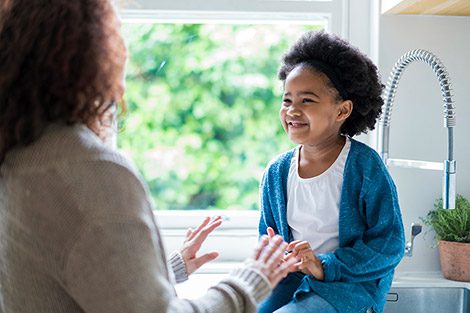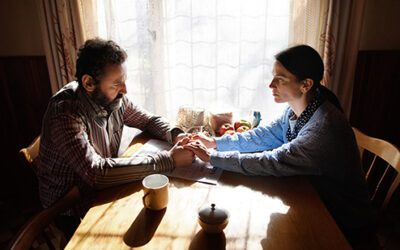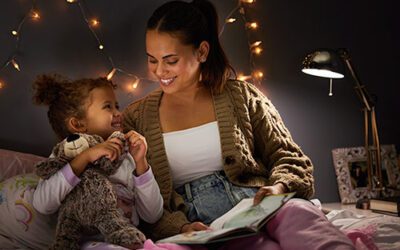
Starting the adoption dialogue early can be very beneficial for the adopted child and creates the foundation for conversations to come.
How Can We Talk to Our Kids About Adoption?
Maintain an open dialogue about adoption and answer your kid’s questions in age-appropriate ways. A lot of adoptive parents brush over their children’s questions. You really can’t do that because then children start to feel shameful like there’s something wrong with adoption.
Adopted children need to know that their adoption was a joyous event and that adoption is a part of who they are. Families need to be educated, as well. Extended family and grandparents should have that education before the child enters your home. Explain to them the importance of discussing and celebrating how your adopted child joined the family.
No matter how well-loved your child is and how satisfied he feels about his adoptive family, she may sometimes worry that her birth family didn’t care about her. Sometimes, she may fantasize about these unknown people being movie stars or celebrities.
If she shares these thoughts with you, don’t worry about it: this is normal. This kind of sharing usually indicates her trust in you as her family. If you have an open adoption, your child may be in contact with his birth parents, which makes the questions easier to answer.
You can assure her that birth parents love their children. They made an adoption plan because they didn’t believe they could provide for her in the way they wished. Her parents probably think of her often. You might say, “I know they would be very proud of you if they could know you now.”
Who Am I?
Author and psychotherapist Stacie Cahill is an adoptive mother who works with parents as they tackle adoption identity issues. She and her husband were blessed to adopt a baby girl, whom they named Chelsea.
Stacie admits that in the beginning, she didn’t want to spend a lot of time talking about adoption with Chelsea. She didn’t want her to feel different. Over time she realized that by talking about it, they could celebrate adoption and make it feel normal.
Chelsea’s adoption happened when their biological son, Jacob, was two. Three years later, Jacob took it upon himself to describe adoption to Chelsea. He told her the stork brought her to their house. She was upset. Not a great way to describe adoption to a tender three-year-old!
At that point, Stacie knew that she had to give a better explanation. She wrote a book and dedicated it to Chelsea, explaining how she grew in her heart instead of her body. Stacie knew that adoption was part of her child’s identity from the beginning. This is why you should start talking to your baby about adoption as soon as possible.
Will You Love Them Differently?
Many hopeful adoptive parents wonder if they will feel a difference in their bond with their adopted children. Every case is different, but usually, parents have to think twice about who’s adopted and who’s biological. Their kids are their kids, and they love them all equally.
It’s also important to make sure your biological children feel special and loved, especially when a new child or baby is joining the family through adoption. Jacob told Stacie that he wished he was adopted. As a result, Stacie wrote a book for her biological son Jacob as well, My Parents Love Me Too.
The book is told from the perspective of a little boy whose parents are preparing for his sister’s arrival. He is worried that being a biological child isn’t as important as being adopted. Throughout the story, his parents reassure him and show him how special he is. In the end, he understands that being biological is wonderful too.
When Should We Start?
Some adoptive parents wonder when to start talking about adoption with their child. If you think of adoption as second best, something you’d rather the neighbors didn’t know, you may find yourself in a dilemma. Your child will see that you consider adoption distasteful, something you’d rather not discuss.
If, however, you believe adoption is a normal way of creating a family, you won’t find this discussion difficult. Adopting a child is different from giving birth, but it doesn’t change your love for your child.
You can discuss adoption with your child when he is very young. It’s not a subject you need or want to hide. On the contrary, it’s the reason your family is able to be together, which is positive. With this attitude, you can enjoy talking about adoption with him.
How you talk to your children about adoption depends on their age. Your preschool child will likely be ready for a basic definition of adoption. This definition should be as simple and concrete as possible.
For example, you might say, “Every person starts life in a woman’s tummy. When the baby is ready, the woman gives birth. Sometimes she is ready to be a mommy. Sometimes she isn’t ready because she’s going to school, or is too young, or can’t give her baby the things she wants for him. When this happens, she may choose another mommy and daddy to parent her child. This is adoption, and adoption is forever.”
Decades ago, when closed adoption was the norm, professionals advised adoptive parents to avoid discussing their child’s adoption with him. As a result, many adoptees were grown adults before they learned they were not born into their families. An individual in this situation was likely to feel cheated and to wonder in what other ways his parents had misled him.
Discussing Adoption
You’ll find many opportunities to discuss adoption with your child as she grows. Books allow you and your child to read about and discuss adoption issues. Today’s adoptive parents should embrace adoption as the beautiful way they built their family.
It doesn’t matter whether mom or dad explains adoption to your child, but the other parent needs to reaffirm the conversation. For example, if she asks Dad about her adoption in the morning, Mom can reinforce Dad’s comments when she’s tucking their child into bed that night.
How your child thinks about his adoption will depend significantly on your attitude. If the parent is nervous about the subject or makes a big deal of it, the child is less likely to think of adoption as a normal way to have a family.
It’s best to speak positively about adoption as soon as your child can understand, probably when he’s a toddler. When you discuss adoption as a welcomed and treasured way of life, your child will likely accept his adoption in the same positive manner. This early support provides the foundation he needs later when he, once again as a teen, questions adoption.
Why Was I Adopted?
As your child begins to interact with other children and other people, she will begin to realize she does have a different family. She may even understand that her family includes another and wonder why she was adopted. It’s natural for your child to want to know why.
If you have an open adoption, your child may be able to ask this question to her birth mother directly. Or, you can share that their birth mother knew she couldn’t provide what she wanted to at the time she gave birth. So she ensured they got the best chance at having a beautiful life.
You might say something like, “She wanted so much for you and ensured we could give it to you. She was sad that she would not be able to be a parent to you but was glad that she could find secure people ready to parent a child and build a family.”
The experience of carrying a child and giving birth is one of the greatest gifts a mother can have. Being able to parent successfully is another one of life’s greatest gifts, but these two things don’t always happen at the same time.
An adopted child may wonder what was wrong with him to make his birth parents choose adoption, and his self-esteem may suffer. Explaining why the birth parents could not parent at that point in their lives can be difficult, but your explanation can be concrete. All he knows at this point is that you love him. He has a family.
Let your child know her birth parents loved her while giving her concrete reasons that answer her questions. By doing this, you will help her understand an incredibly complex situation more tangibly.
Additional Resources
Webinar: Talking About Adoption With Your Child
Two of Lifetime’s adoptive moms share their experiences raising children through adoption. In addition, you’ll get tips to help open the topic of adoption for discussion as your child grows up and learn how other parents talked about adoption with their children throughout the various stages of childhood.
Psychology Today article: How and When to Discuss Adoption With Your Child
An Adoptive Families Guide: Positive Adoption Conversations
Creating a Family’s “Talking About Adoption” Series
Provides interviews with adoption professionals, suggested books, and articles on how parents can best discuss adoption with their children in a developmentally appropriate manner. Resources include the following factsheets:
Talking About Adoption Part 1: Talking With 0–5 Year Olds
Talking About Adoption Part 2: Talking With 6–12 Year Olds
How to Talk with Tweens & Teens About Adoption
Editor’s Note: This article was originally published on August 19, 2019, and has since been updated.
Founder of Lifetime Adoption, adoptive mom, adoption expert, and Certified Open Adoption Practitioner (C.O.A.P).
Since 1986, adoption expert Mardie Caldwell has been dedicated to bringing couples and birth parents together in order to fulfill their dreams.
“Many years ago, I was also searching for a child to adopt. We didn’t know where or how to get started. Through research, determination, and a prayer, our dream of a family became reality. I started with a plan, a notebook, assistance from a caring adoption consultant and a lot of hard work; this was my family I was building. We had a few heartaches along the way, but the pain of not having children was worse!
Within weeks we had three different birth mothers choose us. We were overwhelmed and delighted. Many unsettling events would take place before our adoption would be finalized, many months later. Little did I know that God was training and aligning me for the adoption work I now do today. It is my goal to share with our families the methods and plans which succeed and do not succeed. I believe adoption should be affordable and can be a wonderful “pregnancy” for the adoptive couple.
I have also been on both sides of infertility with the loss of seven pregnancies and then conceiving by new technology, giving birth to a healthy daughter. I have experienced first-hand the emotional pain of infertility and believe my experience allows me to serve your needs better.
It is my hope that for you, the prospective parents, your desire for a child will be fulfilled soon.”





0 Comments